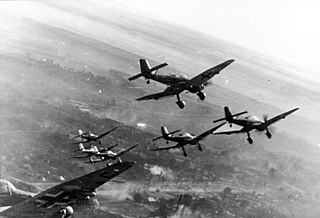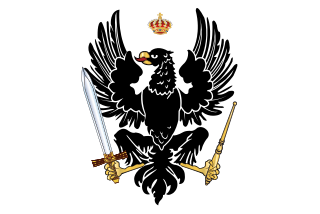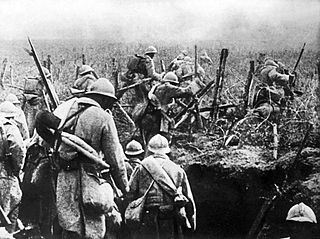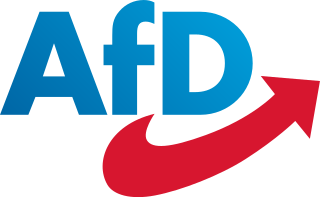
Germany, officially the Federal Republic of Germany, is a country in Central Europe. It lies between the Baltic and North Sea to the north and the Alps to the south. Its sixteen constituent states have a total population of over 82 million in an area of 357,596 km2 (138,069 sq mi), making it the most populous member state of the European Union. It borders Denmark to the north, Poland and the Czech Republic to the east, Austria and Switzerland to the south, and France, Luxembourg, Belgium, and the Netherlands to the west. The nation's capital and most populous city is Berlin and its main financial centre is Frankfurt; the largest urban area is the Ruhr.

German is a West Germanic language in the Indo-European language family, mainly spoken in Western and Central Europe. It is the most spoken native language within the European Union. It is the most widely spoken and official language in Germany, Austria, Switzerland, Liechtenstein, and the Italian autonomous province of South Tyrol. It is also an official language of Luxembourg, Belgium and the Italian autonomous region of Friuli-Venezia Giulia, as well as a recognized national language in Namibia. There are also notable German-speaking communities in France (Alsace), the Czech Republic, Poland, Slovakia, Denmark, Romania and Hungary (Sopron). Overseas, sizeable communities of German-speakers are found in Brazil, South Africa (Kroondal), Namibia, among others, some communities have decidedly Austrian German or Swiss German characters.

The German Empire, also referred to as Imperial Germany, the Second Reich or simply Germany, was the period of the German Reich from the unification of Germany in 1871 until the November Revolution in 1918, when the German Reich changed its form of government from a monarchy to a republic.

East Germany, officially known as the German Democratic Republic, was a country in Central Europe from its formation on 7 October 1949 until its reunification with West Germany (FRG) on 3 October 1990. Until 1989, it was generally viewed as a communist state and described itself as a socialist "workers' and peasants' state". The economy of the country was centrally planned and state-owned. Although the GDR had to pay substantial war reparations to the Soviets, its economy became the most successful in the Eastern Bloc.

Nazi Germany, officially known as the German Reich and later the Greater German Reich, refers to the German state between 1933 and 1945, when Adolf Hitler and the Nazi Party controlled the country, transforming it into a totalitarian dictatorship. The Third Reich, meaning "Third Realm" or "Third Empire", referred to the Nazi claim that Nazi Germany was the successor to the earlier Holy Roman Empire (800/962–1806) and German Empire (1871–1918). The Third Reich, which the Nazis referred to as the Thousand-Year Reich, ended in May 1945, after only 12 years, when the Allies defeated Germany and entered the capital, Berlin, ending World War II in Europe.

The Nazi Party, officially the National Socialist German Workers' Party, was a far-right political party in Germany active between 1920 and 1945 that created and supported the ideology of Nazism. Its precursor, the German Workers' Party, existed from 1919 to 1920. The Nazi Party emerged from the extremist German nationalist, racist, and populist Freikorps paramilitary culture, which fought against communist uprisings in post–World War I Germany. The party was created to draw workers away from communism and into völkisch nationalism. Initially, Nazi political strategy focused on anti-big business, anti-bourgeoisie, and anti-capitalism, using disingenuous socialist rhetoric to gain the support of the lower middle class; it was later downplayed to gain the support of business leaders. By the 1930s, the party's main focus shifted to antisemitic and anti-Marxist themes. The party had little popular support until the Great Depression, when worsening living standards and widespread unemployment drove Germans into political extremism.

World War II or the Second World War was a global conflict between two coalitions: the Allies and the Axis powers. Nearly all the world's countries participated, with many investing all available civilian resources in pursuit of total war. Tanks and aircraft played major roles, enabling the strategic bombing of cities and delivery of the only nuclear weapons ever used in war. World War II was the deadliest conflict in history, resulting in 70 to 85 million deaths, more than half of which were civilians. Millions died in genocides, including the Holocaust, and by massacres, starvation, and disease. After the Allied victory, Germany, Austria, Japan, and Korea were occupied, and German and Japanese leaders were tried for war crimes.

West Germany is the common English name for the Federal Republic of Germany from its formation on 23 May 1949 until its reunification with East Germany on 3 October 1990. It is sometimes known as the Bonn Republic after its capital city of Bonn. During the Cold War, the western portion of Germany and the associated territory of West Berlin were parts of the Western Bloc. West Germany was formed as a political entity during the Allied occupation of Germany after World War II, established from 12 states formed in the three Allied zones of occupation held by the United States, the United Kingdom, and France.

The Kingdom of Prussia constituted the German state of Prussia between 1701 and 1918. It was the driving force behind the unification of Germany in 1866 and was the leading state of the German Empire until its dissolution in 1918. Although it took its name from the region called Prussia, it was based in the Margraviate of Brandenburg. Its capital was Berlin.

Adolf Hitler was an Austrian-born German politician who was the dictator of Nazi Germany from 1933 until his suicide in 1945. He rose to power as the leader of the Nazi Party, becoming the chancellor in 1933 and then taking the title of Führer und Reichskanzler in 1934. His invasion of Poland on 1 September 1939 marked the start of the Second World War. He was closely involved in military operations throughout the war and was central to the perpetration of the Holocaust: the genocide of about six million Jews and millions of other victims.

Sokołowsko is a village and traditional climatic health resort in Gmina Mieroszów, within Wałbrzych County, Lower Silesian Voivodeship, in south-western Poland. It lies approximately 4 kilometres (2 mi) north-east of Mieroszów, 12 km (7 mi) south of Wałbrzych, and 75 km (47 mi) south-west of the regional capital Wrocław.

World War I or the First World War, also known as the Great War, was a global conflict between two coalitions: the Allies and the Central Powers. Fighting took place mainly in Europe and the Middle East, as well as in parts of Africa and the Asia-Pacific, and in Europe was characterised by trench warfare; the widespread use of artillery, machine guns, and chemical weapons (gas); and the introductions of tanks and aircraft. World War I was one of the deadliest conflicts in history, resulting in an estimated 10 million military dead and more than 20 million wounded, plus some 10 million civilian dead from causes including genocide. The movement of large numbers of people was a major factor in the deadly Spanish flu pandemic.
Come, Holy Spirit is a Christian prayer for guidance. It is discussed in the Catechism of the Catholic Church, paragraphs 2670–2672. It is used with the Catholic Church, as well as some Anglican and Lutheran denominations.
The Network for Reporting on Eastern Europe (n-ost) is an international non-governmental organization and a registered association based in Berlin. Also known by the acronym n-ost, the Network for Reporting on Eastern Europe is led by Executive Director Hanno Gundert and a seven-member board. The organisation has its main office with full-time staff in Berlin's Kreuzberg district.

Austria, formally the Republic of Austria, is a landlocked country in Central Europe, lying in the Eastern Alps. It is a federation of nine states, one of which is the capital, Vienna, the most populous city and state. Austria is bordered by Germany to the northwest, the Czech Republic to the north, Slovakia to the northeast, Hungary to the east, Slovenia and Italy to the south, and Switzerland and Liechtenstein to the west. The country occupies an area of 83,879 km2 (32,386 sq mi) and has a population of around 9 million.
The Catholic Church operates numerous charitable organizations.

Alternative for Germany is a far-right and right-wing populist political party in Germany. The AfD is Eurosceptic, and opposes immigration into Germany, especially Muslim immigration. The name of the party reflects its resistance to policies of Angela Merkel with her insistence on Alternativlosigkeit. The Federal Office for the Protection of the Constitution, Germany's domestic intelligence agency, has classified the party as a "suspected extremist" organisation.

Leo Schwarz was from 1982 to 2006 the Roman Catholic auxiliary bishop in the diocese of Trier, and was titular bishop of Abbir Germaniciana.

Caritas Georgia is a not-for-profit social welfare organisation in Georgia. It is a service of the Catholic Church in Georgia.

Caritas Belarus is a not-for-profit social welfare organisation in Belarus. It is a service of the Catholic Church in Belarus.















